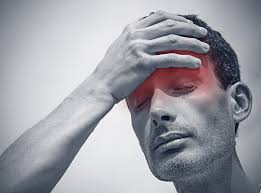Researchers from the University of Sao Paulo discovered that Chronic migraine sufferers, which is defined as having 15 days or more a month of attacks, are also three times more likely to have severe temporomandibular disorder (TMD) (Jaw dysfunction).
They monitored 84 young women, made up of 21 chronic sufferers, 32 with episodic migraine, and 32 healthy controls. Every single one of the chronic sufferers also had the severest TMD, and 80 per cent of those with episodic migraine had some TMD, as did half of the participants who didn't have migraine.
The researchers say that TMD doesn’t cause migraine but if you get migraines, then having TMD is likely to increase the severity and frequency of migraines.
TMD, which affects the joints that act like a sliding hinge that connects the jawbone to the skull, is stress-related and has to do with muscle overload, muscle imbalance. Its symptoms include joint pain, reduced jaw movement, difficulty chewing, clicking or popping of the jaw, and muscle pain and fatigue that can radiate to the face and neck.
So if you suffer migraine it is worth having your jaw checked to see if it is involved. It is also very important to check your neck as this is heavily related to migraine frequency and severity.
Source: Journal of Manipulative and Physiological Therapeutics, 2017; 40: 250
They monitored 84 young women, made up of 21 chronic sufferers, 32 with episodic migraine, and 32 healthy controls. Every single one of the chronic sufferers also had the severest TMD, and 80 per cent of those with episodic migraine had some TMD, as did half of the participants who didn't have migraine.
The researchers say that TMD doesn’t cause migraine but if you get migraines, then having TMD is likely to increase the severity and frequency of migraines.
TMD, which affects the joints that act like a sliding hinge that connects the jawbone to the skull, is stress-related and has to do with muscle overload, muscle imbalance. Its symptoms include joint pain, reduced jaw movement, difficulty chewing, clicking or popping of the jaw, and muscle pain and fatigue that can radiate to the face and neck.
So if you suffer migraine it is worth having your jaw checked to see if it is involved. It is also very important to check your neck as this is heavily related to migraine frequency and severity.
Source: Journal of Manipulative and Physiological Therapeutics, 2017; 40: 250

 RSS Feed
RSS Feed